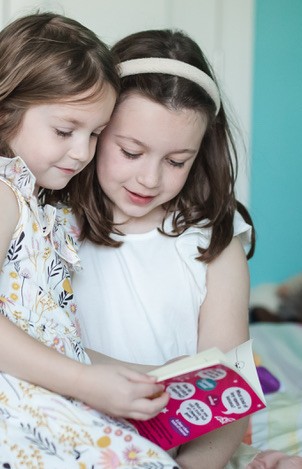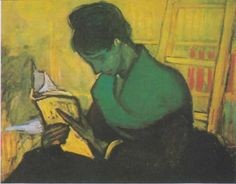Literacy Blogs
- All
- 3-cueing
- academic learning time
- academic vocabulary
- accommodations
- accountability testing
- Active View of Reading
- adolescent literacy
- afterschool programs
- alphabet
- amount of instruction
- amount of reading
- argument
- assessment
- auding
- author awareness
- automaticity
- balanced literacy
- beginning reading
- Book Buddies
- Book Flood
- challenging text
- classroom organization
- close reading
- coaching
- cohesion
- Common Core State Standards
- complex text
- comprehension strategies
- content area reading
- context analysis
- curriculum materials
- Daily 5
- decoding
- departmentalization
- DIBELS
- dictionary skills
- digital texts
- disciplinary literacy
- dyslexia
- early interventions
- effective teachers
- Emily Hanford
- executive function
- family literacy
- fingerpoint reading
- foundational skills
- graphic novels
- guided reading
- heterogeneous grouping of students
- homework
- improving reading achievement
- independent reading
- independent reading level
- informal reading inventories
- informational texts
- instructional level
- invented spelling
- jigsaw instruction
- knowledge
- leadership
- learning disabilities
- Lexiles
- linguistic comprehension
- listening comprehension
- literacy charities
- literacy policy
- literary interpretation
- main idea
- morphology
- motivation
- narrative text
- National Early Literacy Panel
- nonsense words
- oral language
- oral reading fluency
- paraphrasing
- Pause, Prompt, Praise (3P)
- personalized learning
- phonemes
- phonemic awareness
- phonics
- press and media
- principals
- prosody
- Readers' Workshop
- reading comprehension
- reading disabilities
- reading intervention
- reading levels
- reading models
- Reading Recovery
- reading research
- reading skills
- reading strategies
- reading to children
- reading wars
- reading-writing relations
- remedial reading
- rereading
- Response to Intervention
- Scarborough's Rope
- science of reading
- seatwork
- semantics
- sentence comprehension
- sequence of instruction
- set for consistency
- set for variability
- shared reading
- shared reading
- sight vocabulary
- simple view of reading
- Simple View of Reading
- small group instruction
- social studies
- sound walls
- Special Education
- speech-to-print phonics
- spelling
- stamina
- summarizing
- Sustained Silent Reading
- syllabication
- syntax
- syntax
- testing
- text complexity
- text interpretation
- text reading fluency
- text structure
- theme
- think-pair-share
- trauma
- visualization
- vocabulary
- word walls
- writing
- zone of proximal development (ZPD)
How I Teach Students to Use Context in Vocabulary Learning
Teacher question: I recently read an interview that you did. When you talk about kids needing to recognize when they don’t know a word and how to figure it out – did you mean to leave them on their own to do that? When you mention ‘passive scaffolding’ it makes me think you do. I know a lot about vocabulary instruction and my view of passive scaffolding as a first-line technique is pretty dim. Glossaries or dictionaries are frustrating. What kids need is to be able to integrate relevant aspects of word meaning into the context to come up with an ...
Why I Encourage Teaching Children to Read Disfluently
Teacher question Our school is trying to follow the science of reading. We are teaching phonemic awareness and phonics in Grades K-2 and assessing student progress in those skills throughout those grade levels. However, we don’t begin to assess or teach fluency until mid-first grade. Are we doing it right?RELATED: What about the new research that says phonics instruction isn’t very important? Shanahan response: I think it’s okay to neglect fluency instruction until later in first grade, at least with most students. However, I suspect that you’re missing out on a valuable opportunity to teach your students to read disfluently. I hope I can ...
What about the new research that says phonics instruction isn’t very important?
Teacher question: Recently, I saw results of a meta-analysis that showed phonics instruction to have a much smaller effect size (.19) than many other approaches to reading instruction. Doesn’t that mean that we are overdoing phonics? If we want to improve reading comprehension it looks like it would make more sense to emphasize motivation, fluency, and inferencing than teaching phonics.RELATED: Which Reading Model Would Best Guide Our School Improvement Efforts? Shanahan responds: In 1986, Gough and Tunmer presented a model indicating that reading comprehension was the product of decoding ability (the ability to translate written or printed text into oral language – that is, ...
Which Reading Model Would Best Guide Our School Improvement Efforts?
Teacher question: I’m the lead reading coach in our school district. We want to present one of the reading models to our teachers and administrators to guide our efforts to improve reading achievement in the elementary and middle schools. Which of the models do you favor (e.g., simple view, Scarborough’s rope, active view)?RELATED: If You Want Higher Reading Achievement, You’re Going to Have to Deal with the COVID Aftermath Shanahan responds: All those models have some value… and they all miss a key issue it seems to me. Let’s first take a quick tour of those models that you are trying to choose among ...
If You Want Higher Reading Achievement, You’re Going to Have to Deal with the COVID Aftermath
Teacher question: I’m a fourth-grade teacher. This year, because of the COVID shutdowns, I’m seeing more students than ever before who don’t know how to decode. I don’t see how I can teach them what I have in previous years, and I don’t have the ability to deal with the decoding problems. Our district is making a long needed serious effort to upgrade to phonics in our K-1 classrooms, but my students won’t benefit from that. What can I do?RELATED: Shedding Light on Reading Skills and Strategies Shanahan responds: Over the past few weeks, I’ve been hearing these kinds of complaints from across the ...
Shedding Light on Reading Skills and Strategies
Teacher question: I want to clarify the definitions of reading skills vs reading strategies. I know you have written about this, but I’m still confused. I’ve read your blogs, the National Reading Panel Report, Zimmerman's Mosaic of Thought book, Oakhill et al.’s language skills, Chris Such’s book, Scarborough's reading rope, etc. I tried to summarize what those sources had to say about each of more than a dozen strategies and I found several contradictions and lots of general confusion. Some of them label background knowledge as a strategy, while others say it is a language comprehension skill. Comprehension monitoring shows a ...
What's the Role of Amount of Reading Instruction?
John Carroll (1963/1989) proposed an innovative model of academic learning. According to Carroll, learning was a function of five variables: student aptitude, opportunity to learn, perseverance, quality of teaching, and ability to understand. It wasn’t the list of variables that was so provocative, but how Carroll defined each. He operationalized all those in terms of instructional time. For instance, aptitude – then usually a score on an IQ test – was, for Carroll, a matter of the how much time was needed to learn something. A young Einstein may be able to master a K-12 physics curriculum in 42 minutes, while it ...
“It Works” and Other Myths of the Science of Reading Era
Recently, I wrote about the science of reading. I explained how I thought the term should be defined and described the kind of research needed to prescribe instruction. Today I thought I’d put some meat on the bone; adding some details that might help readers to grasp the implications of a scientific or research-based approach to reading. What does it mean when someone says an approach to reading instruction “works”? The term “it works” has gnawed at me for more than fifty years! I remember as a teacher how certain activities or approaches grabbed me. They just seemed right. Then I’d try them ...
How Do You Know if it Really is the Science of Reading?
The literacy field has long been beleaguered by generic terms that no one seems to understand – or more exactly, of which nobody agrees on the definitions. Terms like whole language, balanced literacy, direct instruction, dyslexia, sight words, and guided reading, are bandied about in journals, conference presentations, newspaper articles, and teacher’s lounges as if there was some shared dictionary out there that we were all accessing. Even terms that seem like they would be widely understood like research or fluency often turn out to be problematic. This plague of vagueness is exasperating, and I think it prevents productive dialogue or ...
More on Hanford: Phonics Reform and Literacy Levels
Recently, I posted commentary on Emily Hanford’s reporting and the critical response it received from some in the literacy community. I defended the major thrust of her work and called out criticisms I thought to be illogical, ill conceived, or ill intended – criticism more aimed at maintaining status quo than promoting literacy. I admitted that my endorsement of that journalism was not without limits. I had concerns and said I may write about them in the future. The future has arrived. I expressed two concerns, one substantive and one more stylistic. Let’s get the less important one out of the way ...
.jpg)

.jpg)
.jpg)
.jpg)


.jpg)

